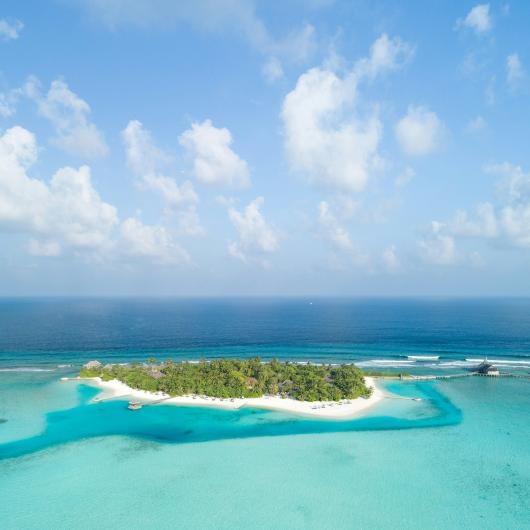Drinking water safety planning in focus during training in the Maldives

Providing the residents of Kaafu Atoll and other Maldivian outer atolls with a reliable supply of drinking water is a challenge, and planning is key. Island council members from all the Kaafu Atoll islands and other atoll officials recently strengthened their ability to conduct drinking water safety planning during a course led by Assela Pathirana, IHE Delft Associate Professor in Water Infrastructure Asset Management.
The training, held on Thulusdhoo island, focused on essential tools and methodologies to ensure the safety and sustainability of drinking water systems. Through a combination of interactive sessions and practical exercises, participants learned how to implement water safety plans (WSPs) tailored to the unique challenges faced by small island environments.
Water safety plans
Water safety plans (WSPs), recommended as a best practice for the provision of safe drinking-water, by the World Health Organization, aim to ensure the safety and acceptability of a drinking-water supply. Conducting water safety planning involves assessing any risks in the water supply chain, from catchment to consumer, and addressing high priority risks with the public health in mind.
Course participants included top leaders of the atoll’s islands. Shadh Ahmed, Secretary General of the Himmafushi island, said he learned about the importance of WSPs in the 9-12 December course: “I learned how we can ensure that that safe water is supplied to the community,” he said. “I also learned about the existing laws and regulations related to water and the responsibilities of the council mandated in these laws and regulations.”
"I learned how we can ensure that that safe water is supplied to the community.”
Local language
The December course built on an open-access online course on WSPs created by IHE Delft and partners to help water organizations develop the skills they need. It followed a course held earlier this year for officials from other Maldivian islands.
“Feedback from the course we held earlier this year indicated that using English as the course language at times made it difficult for participants to follow. Based on this feedback, we translated the course material and taught it in the local Divehi language, enabling the participants to learn more effectively,” Pathirana said.
The course was delivered in Divehi by IHE Delft alumnus Ali Mishal with the support of IHE Delft Water Governance Lecturer/Researcher Akosua Boakye-Ansah.
Part of work with SIDS
This course was part of IHE Delft work with Small Island Developing States in addressing the distinct challenges they face in supplying drinking water, such as geographic isolation, limited resources and vulnerability to climate change. This work also includes a Regional Workshop on Integrated Management of Small Island Water and Marine Resources, held 9-12 December in Thulusdhoo.
IHE Delft work with the Thulusdhoo Island Council and other key stakeholders is part of a Water and Development Partnership Programme project. The programme is financed by the Dutch Foreign Ministry.
